
The annual New Year’s Day party hosted in the cavernous Robeson home in Evanston was invariably a drag, but that didn’t keep anyone who received an invitation from accepting. They went because they were grateful to be on the party list and they wanted to see and be seen. Bernard Souser, the art dealer from whom Sissy Robeson regularly bought paintings, always was invited, of course, and though he’d arrive late and sneak away early, Sissy never noticed.
This year he would have bowed out entirely had Anne Lavelle, his partner in their newly formed Souser + Lavelle Gallery, not told him to stop being such an ass. “We’ve got to go and work the room, Bernard. It’s a great opportunity to let people know the gallery is now owned and run not just by you, but by the two of us.”
Now Bernard found himself standing in the middle of the living room surrounded by guests fighting their way to the bar or trying to locate people whom they thought might do them some good. Despite knowing Anne was right, Bernard couldn’t muster the will to mill about and schmooze. He’d always found large parties grotesque, but small parties, well, they were something else. That’s where real conversations happened and you got to talk about what you loved – in his case, abstract painting (an obsession he couldn’t explain even to himself), ancient Rome, the Enlightenment, the mycorrhizal network, King Lear and The Tempest, the Grateful Dead, Schuman, or, if he’d put down enough wine, the novels of Jane Austen.
As usual, Bernard had closed the gallery a few days before Christmas and wouldn’t open it again until Will Tumber’s show at the end of January. He always used the time to hit the gym extra hard and have his two boys come up from Laresville for a couple weeks of father-son camaraderie. This time, however, they’d balked at such a long visit. “Dad,” his older son said, “if we skip training, we’ll lose our place on the soccer team.” They settled on two weekdays and a weekend. Tearing a pair of full-blown teenagers struggling with pimples and stray erections away from their screens to look at paintings at the Art Institute wasn’t going to happen.
Suddenly, a server with a carefully constructed smile stood in front of Bernard holding a bottle of Sauvignon Blanc saying, “A bit more?” Though it would be his third refill, Bernard had a ride back with Anne, who never drank, so he nodded yes. Out of the corner of his eye he caught sight of a shrimp covered in cocktail sauce as it slid off a plate held by a woman dressed in a tight red dress and then went splat on the polished hardwood floor. She kept on conversing while using the toe of one of her stiletto shoes to casually shove it under the table. Bernard suppressed the urge to sidle up and whisper in her ear, “I saw that.”
Bernard’s ex-wife Cindy had the annoying habit of gleefully repeating the word “rutabaga” three times every time she entered a room where a lot of people were standing around talking. Damn if that wasn’t the sound Bernard was now hearing – “rutabaga, rutabaga, rutabaga,” punctuated by the sounds of laughter and a few random bits of English – “you have no idea” … “planning to leave for Vail on the 26th… “I’ll text you his number” …“yes, and after all these years…”
“You look bored, Bernard. Deeply and profoundly bored,” Anne said, her body and voice appearing out of nowhere to break his spell.
“Am I that obvious?” Bernard asked, turning to her with a wry smile. “I’m actually happy as a clam drinking this unbelievably delicious wine. You should try it.” Quickly, before Anne could react, Bernard said, “I apologize, Anne. It won’t happen again. Anyway, I need to talk to Bob and Sissy before we leave but haven’t found them yet.”
“Bernard, mentioning drinking is fine by me. I’m at five years with AA and I get it. I’m an alcoholic who doesn’t drink. As for the Robesons, guess what? They’re coming our way right now.”
Sissy stepped forward, embracing them and planting trois bisous on their cheeks. Bob followed up with a grin full of over-bleached teeth and a vigorous corporate handshake. Anne tried subtly to signal Bernard that Sissy had left a lipstick imprint on his face that needed wiping.
“I’m so glad you could come,” Sissy said, stretching out the word “so.” She was awash in an expensive fragrance Bernard recognized as one that made him feel nauseous. “You are my absolute favorite people,” Sissy said. “Before I forget to say it, Bob and I can’t tell you how much we adore our new paintings. I mean, I know you can’t see them very well what this crowd, but you know them, you hung them, and you know our living room walls, so you can imagine the rest.” She chuckled at how clever she was.
“Molly’s new painting is as amazing as the three others we have in our bedroom,” Sissy said. “But I must say, Bernard – oh yes, Anne, too – heavens, I almost forgot! So logical for you two to team up. Anyway, wow, Will Tumber! Will is awesome! I can’t stop looking at his painting!” Anne again motioned to Bernard about the lipstick mark, but he was too distracted by trying to parse the difference between “amazing” and “awesome” to notice.
“Bernard – and Anne, too – tell me something. Do I call your new gallery, ‘Souser and Lavelle Gallery’ or ‘Souser plus Lavelle Gallery?’”
“Just say ‘and,’” Anne said evenly. Sissy rested her hand on Bernard’s shoulder and gently massaged it while bringing her face close to his. “I think ‘plus’ would be a lot better, Bernard, don’t you?” Then she began vigorously dabbing at Bernard’s cheek with her cocktail napkin. “Sorry about the kiss mark. Hold on. There. Got it.”
Bernard, feeling as if he’d been bitten by a wasp, reached up and rubbed his face hard. Sissy knew Bernard had been a motel manager before becoming an art dealer, which Bernard thought explained why she never passed up the chance to put him in his place. Touching his sportscoat wasn’t affection, Bernard knew; it was her way of sussing out the quality of the cashmere in order to compare it to that in the Zegna bespoke garment Bob was wearing.
“Listen,” Sissy said, “we’re excited to see Will’s new show – opens end of January, right? Bob and I will be back from Coral Gables by then so that’s perfect. Put us down for a painting – a big one – would you? Send me images and I’ll select something while we’re still in Florida.”
“Will do,” Bernard answered with pretend eagerness. “January 28th is the opening,” Anne added. “You’re of course invited to the dinner afterwards, so do save the date.” Bernard swiveled his gaze over to Bob, whose beady eyes rattled his nerves.
After Sissy and Bob moved away, Anne teased Bernard. “Methinks the lady wants to have sex with you,” she whispered.
“You know I’m way too handsome and virile for her taste,” Bernard whispered back. For a flickering moment the two locked eyes and time flew back to eight years ago when they’d been lovers. Just as quickly the present reasserted itself and they headed for the door. Anne blew kisses to people across the room while Bernard went to get their coats.
Outside, the cold air hit Bernard’s face like a slap. The Big Dipper with its seven tiny points, as was always the case with him, sent shivers of wonderment down his spine. The moon, waning crescent, offered little light, but the walkway leading from the house had a million tiny, white holiday lights making it easy to find their way back to Anne’s car.
“Come on, Bernard, that wasn’t so bad,” Anne said, as the two of them buckled their seatbelts. “You did what you do best, which is to ponder the absurdity of the human condition, and I did what I do best – which is business.” Anne patted Bernard’s gloved hand before backing out the driveway and heading out onto Sheridan Avenue.
“You’re right, it wasn’t a bad party,” Bernard said, tightening his seatbelt as Anne upped the speed. “It was merely another one of those scenes where vapid people gather together to talk about nothing and a guy like me ends up depressed.” Anne didn’t have a clue what he was talking about, and didn’t really care, but in college Bernard had read The Sorrows of Young Werther and had never gotten over it. Middle age increasingly made him see himself as an aged version of the wretchedly unhappy Werther.
As Anne drove onto Lake Shore Drive, Bernard said, “I looked at the paintings in the living room and was exhilarated. Then I thought about how they’re owned by the soulless Sissy and Bob and the black dog came to hang out with me.”
Anne let him go on for a while before breaking in. “Bernard, I’ve said it before and I’ll say it again. You spend too much time wallowing in existential angst about the world and not enough time enjoying it. And you’re way too hard on Sissy. She’s a moderately tolerable rich person, and though Bob could care less, she loves their paintings. Without people like the Robesons there’d be no art. It’s as simple as that.”
The week before Anne signed the partnership contract with Bernard she’d googled the words, “people with up and down moods.” After a couple hours on the Johns Hopkins website she concluded Bernard suffered from cyclothymia, a psychological disorder where the person swings between elation and depression but isn’t so off the charts that the bad moods can’t be managed. She decided that unless it got worse, she’d continue doing what she’d always done: when a dark mood moved in, like now, she’d distract him.
“You and I are going to make a major statement with our gallery, Bernard. We balance one another – you with a natural eye for art and me with knack for closing the deal. Which reminds me. Sinead texted me she’s got the insurance paperwork ready for us to sign before we install the Hess Restaurant paintings. Also, the announcement about our new partnership and the gallery’s new name is ready. I say we e-blast the thing tomorrow.”
Bernard grunted yes. “Good,” Anne said, “I’ll text Sinead first thing when I’m home and I’ll go over what we want in the way of social media announcements when I’m in the gallery on Tuesday.”
They drove in silence for several minutes before Anne said, “It’s going to be a breakout show for Will. Think about it. Every painting in his first show sold and clients are lining up for his new work even before the show opens. Things couldn’t be better!”
“I won’t kid you, Anne, it’s been hell these past few years,” Bernard said, staring out the window at the approaching lights of Chicago. “After the financial mess I got into because of the pandemic, I had my annus horribilis, or whatever the hell the Queen called it, of trying to build back business. And then that crew of raging Maoists put out those fucking pamphlets attacking my gallery. I’m telling you there’s no talking to those people. They called me sexist, which was ridiculous since my gallery has always been more than half female. They also wrote that I was racist because I’d taken on only one Black artist.”
“Well, no matter, the job moving forward is to build a more diverse stable.”
“Agreed,” Bernard said. “But I refuse to let other people dictate what our vision is. We have our own taste to promote and should never show an artist because we’re pressured by the need to become more diverse.”
“OK, sure, but we need to cast the net wider and drill deeper than you’ve been doing up to this point,” Anne said.
“I’m all in with that,” Bernard said, “and I really want your help. By the way, did you read my email about a Black abstract artist in Lexington who teaches at the Herron School of Art whose work intrigues me? Take a look at his website. I think it’s worth driving the three hours to Indianapolis to visit him in his studio.”
Anne began showing off what her new Beamer could do by slaloming in and out of the fast lane. She kept it up until they were close to North Avenue, the exit for Bernard’s Wicker Park apartment, when she slowed down and turned on the news.
“So, we’re on for the studio visit with Will this Wednesday.” Bernard said as Anne pulled in front of his building. “Will says he has thirteen new paintings. He sent me images, but they’re too blurry to bother with. I’m figuring eight paintings for the show and a few for the back room.”
“Thirteen? Wow, he’s been one busy boy since his last show,” Anne said. “I can’t wait to see the work.”
Before opening the door, Bernard paused and said, “Even though I was scared shitless all the way home, I have to say you drive this baby like you’re Mario Andretti.”
*****
Bernard had discovered Will by chance when Covid restrictions first eased. He and Jackie Jurzyk, one of his long-time artists, were getting on the freight elevator of the warehouse building on West Carroll Avenue where she and several other artists had their studios when Will, a handsome thirty-something whom she knew only by sight, suddenly joined them. His studio turned out to be on the third floor down the hall from hers, and by the time the elevator arrived at the third floor, he’d persuaded Bernard to come see his paintings after his visit with Jackie.
The three large paintings Bernard saw upon entering Will’s studio stopped him in his tracks. They consisted of unusual organic shapes in subtle, contrasting colors. Though painterly, the brushstrokes were more refined and delicate than those in most Abstract Expressionist work. Bernard saw several additional paintings leaning against a wall on the far side of the room that didn’t interest him and thought they might be works in progress.
After fifteen minutes of standing in front of the three paintings and talking with Will about them Bernard turned to him and said, “I’d like to show these.”
Speechless, Will looked at his paintings across the room before turning back to Bernard and saying, “You like these three that much?”
“Yes, Will, I totally like these three,” Bernard answered. “We’ll need more for the show, which I’d like to have open my fall season. Do you think you can be ready?”
The two then sat in front of the paintings for a couple more hours while Will told Bernard about growing up a working-class kid in Lexington, Kentucky, and getting his BFA at the university there. When he was twenty-five, he inherited his parents’ house and some money – enough to cut way back on his construction day job and focus on his fledgling painting career, which led to a few group shows. The following year the probate court surprised him with a letter saying his father had also left him a house in Chicago that was fully paid off. The previous owner was his father’s brother, who died in 1987, the year Will was born. When Will drove up to Chicago to check out the house, he found it in terrible shape. He gave the tenants two months to move out, moved in, and began renovating. He leased the West Carroll Avenue studio and began painting there. When Covid hit and the studio building locked down, he put off the renovations and painted in the dining room.
*****
The West Carroll studio building was a twenty-minute drive from Wicker Park. On the Wednesday after the Robeson party, Anne picked up Bernard in her car and the two of them arrived before noon. As they walked up to the loading dock with the entrance to the building, a parade of puffy clouds appeared on the horizon. Bernard pointed out to Anne that one of them was in the shape of a seahorse, but she barely cracked a smile.
The windows in Will’s studio offered soft light as well as a panoramic view of the muscular Chicago skyline. Will had lined up the thirteen paintings he’d finished for his second show and leaned them against the walls. When he went to a corner table to make coffee, Bernard and Anne walked around the room looking at the paintings in silence.
Perhaps Will was nervous about his upcoming show, for he seemed frazzled – spilling Anne’s coffee, smoking cigarettes one after another, and fussing with his hair, which was ordinarily clean and combed but today greasy and messy. Worst of all, his complexion had turned sallow. It struck Bernard that he might be on drugs.
Anne, having met Will only a couple of times, noticed none of this and started gushing the moment she’d finished surveying the paintings. “These are incredible, Will. Amazing. Awesome. I’ll have Sinead call you later today to arrange pickup. The photographer needs to shoot them Thursday.” Bernard said nothing. Anne babbled on before prompting him with her elbow to point out his favorite painting. The visit ended in under an hour.
On the elevator, Anne crossed her arms and refused to look at Bernard. Driving back to the gallery, she finally said, “What the hell happened up there? We go see these amazing paintings and you can’t even say one word?” Anne turned to him and said, “OK, I’ll be direct. You were incredibly rude to Will. What’s that about?”
“I’m sorry, I’m still thinking about the paintings,” Bernard said. “My immediate reaction is that the work is fucking awful. Completely dead. Nothing like the work in his first show.”
“What!? What in the world are you talking about?” Anne yelled. “Will’s new paintings are absolutely brilliant! I’ll concede the work is a little busier than the paintings in the first show, but changes are inevitable, and I think these paintings are every bit as good. Clients are going to fall all over themselves trying to get hold of one.” Anne sliced the air up and down with her hand. “You can be so fucking infuriating, Bernard. You discover a great new artist and in less than a year you sour on him. You fucking need a shrink.”
At the gallery, Anne slammed the car door, practically ran inside straight to her office, and closed the door. Bernard went to his office as well but couldn’t concentrate. Around five, he knocked on the door of her office and said, “Hey, I’m heading out now. I’m sorry about earlier. I’ve been thinking it over and you’re right. I’m way too critical. I’m always finding fault with everything.” Uncertain about the sincerity of his contrition, he plunged ahead and offered it anyway.
Anne sighed. “It’s just your idealism getting in the way of you seeing straight. Work on it, would you? Will’s paintings are great, and the show will be stunning. I can’t believe I’m saying this but go have a drink. It’ll make you think straighter.”
On the bus ride home, Bernard decided to take Anne up on her advice. He got off early and stopped by Rainbo, an artsy bar he visited fairly regularly. Bernard sat in his favorite seat at the end of the bar and after chatting with the bartender, a young painter whom he’d known a couple of years who longed to be in his gallery, he asked for a whiskey, neat. The first sip warmed him and made him feel comfortable enough to turn with a smile toward the slightly disheveled old man seated almost next to him, who took it as a cue to start up a conversation.
“Hey, I’m Steve,” he said, lifting his glass of beer in a greeting. “Just what is it you do for a living that has you dressed so much better than me?” Bernard looked down at his Vince cashmere sweater and jeans combo and realized with a start that to most people he must appear rich.
“Yeah, well, don’t be fooled by my clothes,” Bernard said with a laugh.
“Seriously, now that I’m in my 80s and long retired, it entertains me to find out what other people do.”
“OK, I’m Bernard and I’m an art dealer,” Bernard said.
“Hell, that’s great. I’m no rube, Bernard. I know a lot about art. I used to go to the museum with my wife. And back in the seventies, when I first started working as a clerk in a hardware store –mind you, I eventually bought it and did well with it – I was friends with a local artist I met right here in the days before this place was called Rainbo.”
Bernard, feeling the whiskey sooth his temples, was only vaguely listening. “The guy was a plumber who painted on the side and never showed his paintings to anyone,” Steve continued. “We both used to come here late in the afternoon – me after the hardware store closed and him all smeared with paint. We hit it off right away. He told me he painted in his dining room in a house he owned not far from here. He was sort of a recluse, so I never got invited over. He’d do his plumbing, such as it was, in the morning and paint all afternoon. Then one day he simply stopped coming.”
Bernard said, “Heart attack?”
“Not sure. He was young, maybe fifty. Like I said, it was back in the seventies, so things are fuzzy. I remember his first name, though. Clyde. Can’t remember the last name. Wait a moment. Tumber, that was it! Clyde Tumber.”
Bernard stared hard at Steve. “Tumber ? You knew a plumber named Tumber who made paintings in his dining room?”
“Yup. He was an odd duck. He used to spread his arms out like an airplane and say his pictures were ‘wider than his wingspan.’ He claimed they were better than what he saw at the Art Institute because everything he painted came from inside his head. I figured he meant they were abstract, but he got angry when I used the word and told me, ‘They’re not abstract, they’re ‘real.’”
Bernard turned away and stared into his drink. After another fifteen minutes, Steve gave up trying to talk and left. Bernard finished his whiskey before walking the rest of the way home, where Mondrian received him with a plangent meow. Bernard fed him and then sat down on the couch with his laptop. After a Google search of Chicago’s online death records, he confirmed that a Clyde Tumber died March 27, 1977, at age 50. Bernard grabbed Mondrian and began scratching him between the ears and then down his back all the way to his tail. Will’s show was scheduled to open in three days.
*****
Seated at a small Starbucks table with their coffee, Bernard and Will stared warily at one another. Bernard finally said, “Here’s the thing, Will. I know you didn’t paint the paintings in the show you had with me last year.” Holding his gaze, he continued. “I think your uncle Clyde Tumber made those paintings. If I were to check the lower righthand corner of the paintings in the first show, I’m pretty sure I’d find the paint you used to cover up Clyde’s signature. So you can either tell me the truth now or humiliate yourself by continuing to lie.”
Will conceded the facts but held his ground. “It’s you who caused this to happen, Bernard,” Will said evenly. “Not me. You walked into my studio, saw the three paintings, and assumed they were mine. Don’t you remember how the minute you saw them you fell all over yourself praising them? And how you didn’t even notice the several other large paintings across the room that were actually mine?
“Yes, well, I actually did notice them, but to spare you, I didn’t tell you that they didn’t interest me. Anyway, that was the moment you should have told me the truth,” Bernard said.
“Right. And give up my chance to have my first solo exhibition? All I committed was a sin of omission, or whatever it’s called.”
“How did you get hold of Clyde’s paintings?”
Will took a sip of his coffee before answering. “When I moved into my uncle’s house, I found fifteen paintings, all in unbelievably good shape, carefully stacked under a tarp in the paint-splattered dining room where he’d obviously painted them. He either arranged them that way or after he died and my father inherited the house, he did it. My dad told me Clyde was an artist as well as a plumber, but I know they rarely saw one another.”
Will leaned forward and said, “Don’t you think the fascinating part is that my paintings are exactly like my uncle Clyde’s? Maybe it’s genes. What you saw that first visit were the three I’d just brought over to the studio to scrape down and use as a base for my own paintings. That’s what they would have been good for. A way to start mine.”
“Your paintings are nowhere near as good as Clyde’s.”
“That’s your opinion,” Will said, bristling. “Anne thinks differently.” Will looked straight at Bernard and said, “Look, what I did never hurt anyone. My uncle was a nobody, and he’s long dead anyhow. He never showed his work and all I did was bring it to the fore. Besides, what can you do about it now? Cancel my show and tell everyone that the ‘great eye’ you’re so proud of failed you? Collectors would be furious. No one would ever trust you again.” Bernard walked out without answering.
“Yes, I missed it entirely,” said Anne. “How many times do I have to say that you’re the one with the eye and I’m the one with the business sense? The show is going to go on and we’re not telling anybody. Will’s not talentless. His paintings will eventually get better and end up as good as his uncle’s.” Back at home, some whiskey, his cat, and the sound of two cellos playing Schubert’s string quartet in C major on his speakers lifted Bernard out of his misery. He leaned his head back on the couch and entered the place where beauty alone rules. He’d snap out of it soon enough.
About the author: Laurie Fendrich is a painter, writer, and professor emerita of fine arts at Hofstra University.
NOTE: Two Coats of Paint 2022 Fundraising Campaign is underway. If you enjoy Two Coats of Paint’s art coverage, please consider making a tax-deductible contribution. Help keep the painting conversation going in 2023. Thank you! Click here to contribute.

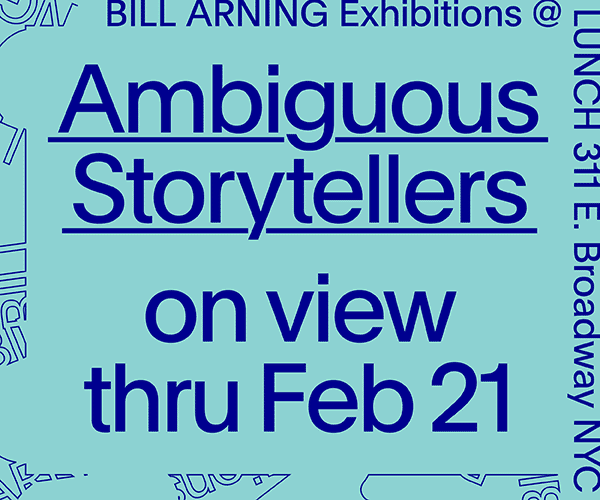
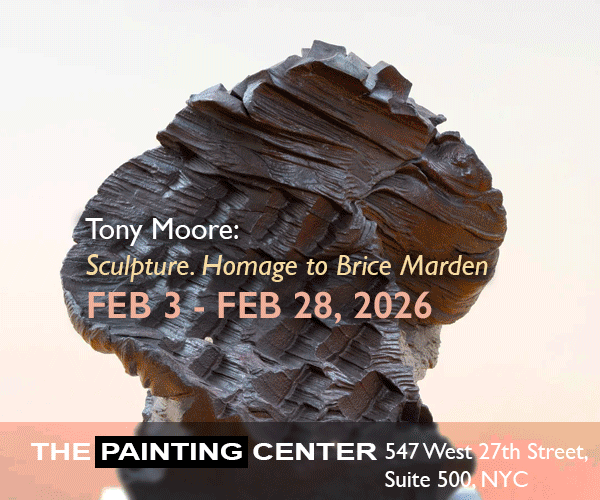

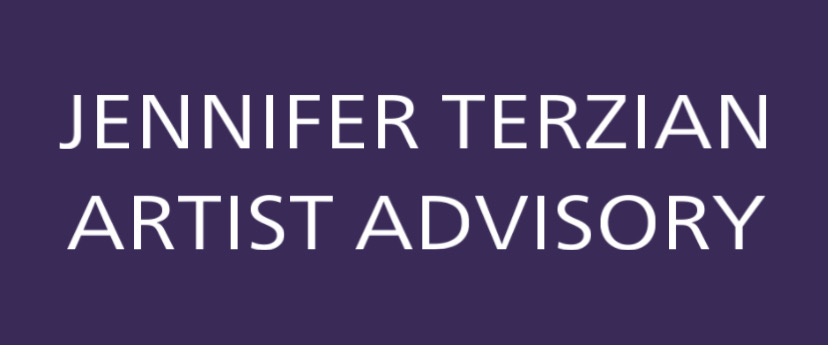

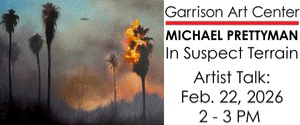
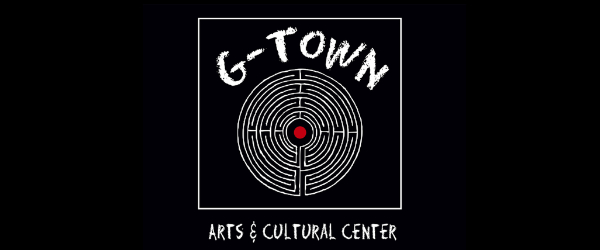











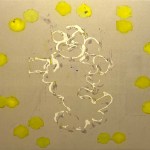
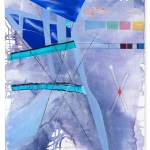

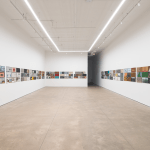
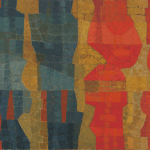

Great fun! I didn’t know they had art in Evanston. I would love to hear more about Bernard’s background as a motel manager. In fact, I’d like to know more about both Bernard and Anne. Keep ’em coming!
Nice read Laurie, so easy and fun. Big congrats! Make sure to send it to Jan Cicero, I think she’s still in Evanston.
In the end, the eye is everything .
Terrific, Laurie! I so enjoyed this story – would love to see it continued.
Good one, Laurie!
Brava! Without the eye, all is commerce.
Great fun, Laurie. When will we see these people again? I feel I’m just getting to know them.
Another brilliant story, beautifully structured! I love the way Laurie reinvokes the art world scene at the outset (the party, the interaction between Bernard and Anne), followed by Barnard’s dramatic discovery and the affirmation of his perceptive eye near the end. I’ve been routing for Bernard, but last we saw of him, he was down and battered, and for me, sort of blurry and not compelling . In this story, it’s a relief to see a very positive side of Bernard’s character and his gifts. He seems to have regained self-confidence, and it’s interesting that he’s teamed up with Anne, who can relieve him of some of the business parts he detests.
Will is deftly drawn and distressing, but his psychological predicament and failings are easy to imagine from Laurie’s restrained but bold-stroked treatment.
I agree with several other commenters — I can’t wait for more.